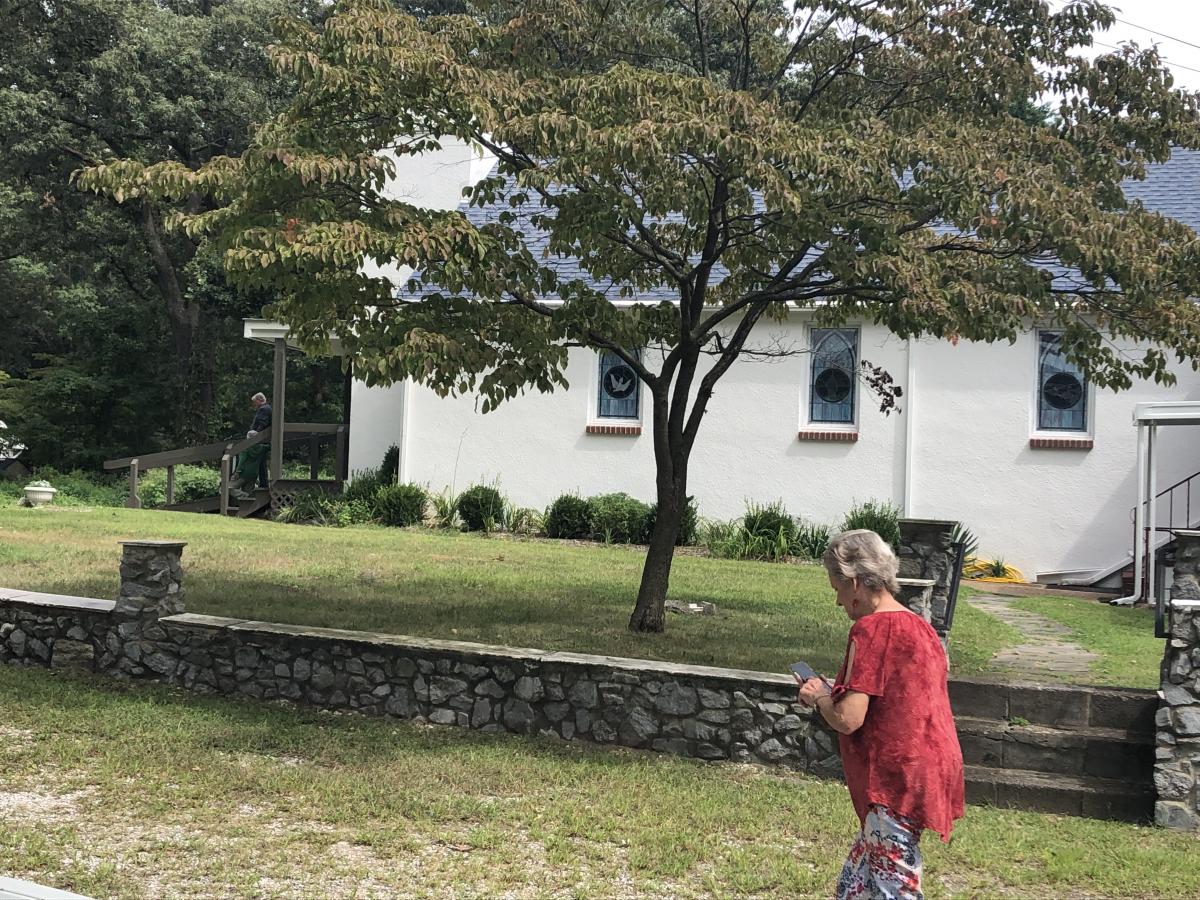 Two Sundays ago, I listened to a friend, a Lutheran pastor, preach at a notably small church in Pasadena in Anne Arundel County. His words mattered; so did his presence with 24 parishioners, including ones on zoom.
Two Sundays ago, I listened to a friend, a Lutheran pastor, preach at a notably small church in Pasadena in Anne Arundel County. His words mattered; so did his presence with 24 parishioners, including ones on zoom.
Before exploring my friend’s message about trusting God to provide grace at crucial moments, I must acknowledge the messenger’s fragile health. His heart is beyond permanent repair. His breathing is labored at times. He moves with a walker.
He accepts his health deficit. He understands that a delicate heart operation six months ago at Cleveland Clinic was only so successful. He has forsworn redundant tests. He has sought God’s help to attain peace of mind. Miracles are out of question. He eschews self-pity.
Like Pope Francis, about whom I wrote a few weeks ago, my friend fears not to appear before his congregation in a physically weakened state. He has served his parish in a middle-class community for 31 years. His ministry is one born of love for his faith and his congregants. His day job , when he retired more than ten years ago, was as a top-ranking executive at the National Archives, where he worked for nearly four decades.
My friend is my next-door neighbor here at BayWoods of Annapolis. He is immensely likable with a charming sense of humor who once upon the time was training to be a Roman Catholic priest—before he changed his mind and decided upon a different path in life. His spirituality still governs his life.
Coping with the death three years ago of his wife and then an onset of constant disabling medical ailments, my friend the pastor asked his small number of congregants to trust God to support them at time of need.
He told the story of crying out at Johns Hopkins Hospital as his wife was dying. An “angel” appeared in the form of James, whose wife also was dying. They provided solace to each other. The pain of impending loss still seared. But my friend was not alone.
Not only in the spiritual but secular world as well, “grace” or “angels” arrive by your side when you least expect it. Seven years ago, after I was diagnosed with prostate cancer, an Easton friend whom I knew slightly offered to counsel me whenever I wished during my journey. He provided grace when I urgently needed it. Another friend brought me books to read about prostate cancer. And I did, much to my benefit.
During his service, my neighbor seemed shaky at one point, catching his breath and steeling himself to complete the prayers, lessons and sermon. As we enjoyed lunch afterwards, he admitted to a moment of weakness. He told me he asked God to give him the strength to continue.
A day after enjoying the experience at the Lutheran church, I encountered a 91-year-old neighbor in the mailroom. His wife just died. She was truly a delightful person well-liked in our community. After overhearing my brief conversation with the widower, the postal carrier stopped filling the mailboxes and too offered his condolences. Then a BayWoods employee hugged the gentleman. When I related this scene to my neighbor, he referred to the two consolers as “angels.”
Human vignettes can illustrate the goodness of people in unstaged, authentic moments. You know something special is happening. You can see and feel it.
My friend continues to feed his soul. His outreach to his parishioners is now on a different level; he is as vulnerable as they. Like them, he trusts that God will support him in his quest not to overcome but live with pain and discomfort. For some, he may be an angel.
Columnist Howard Freedlander retired in 2011 as Deputy State Treasurer of the State of Maryland. Previously, he was the executive officer of the Maryland National Guard. He also served as community editor for Chesapeake Publishing, lastly at the Queen Anne’s Record-Observer. In retirement, Howard serves on the boards of several non-profits on the Eastern Shore, Annapolis and Philadelphia.



Tom Hill says
A beautiful message, Howard. Replete with wonderful examples of goodness and kindness toward our fellow man.